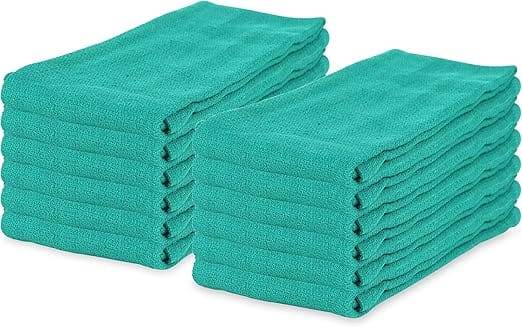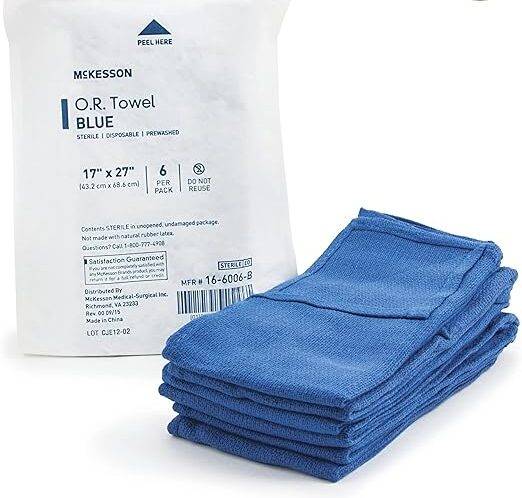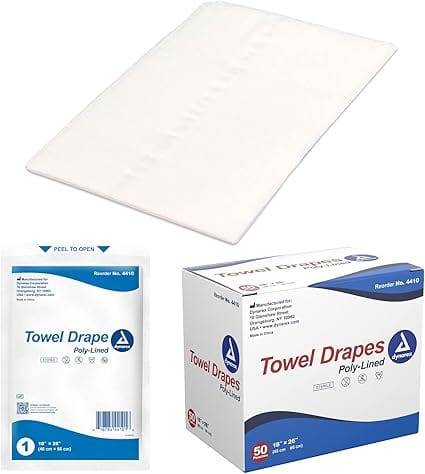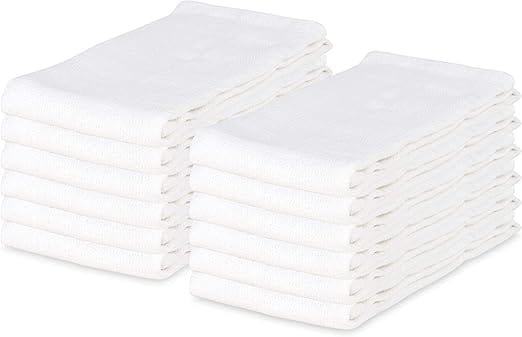Skip to content A magyar online fogadási piac jelentős növekedést mutat az elmúlt években, számos nemzetközi szolgáltató jelent meg a hazai piacon. A játékosok egyre nagyobb választékból válogathatnak a különböző sportfogadási és casino platformok közül. LV BET
Nowoczesne platformy hazardowe oferują graczom szeroki wybór gier i atrakcyjne bonusy powitalne. Wiele z nich posiada licencje międzynarodowe, co gwarantuje bezpieczeństwo transakcji finansowych. Wazamba
Online sports betting platforms in Poland have gained significant popularity among football enthusiasts. Many operators offer competitive odds and extensive market coverage for major European leagues. Superbet
Polscy gracze mają dostęp do licznych licencjonowanych operatorów bukmacherskich oferujących zakłady sportowe. Regulacje prawne zapewniają bezpieczeństwo transakcji i ochronę danych osobowych użytkowników. Totalbet
Central American betting markets have attracted international operators looking to expand their reach. Costa Rica-based platforms often provide extensive sports betting options for Latin American customers. Betcris
Międzynarodowe platformy hazardowe często działają na podstawie licencji wydanych przez zagraniczne organy regulacyjne. Gracze mogą korzystać z usług licencjonowanych operatorów spoza Polski. Betcris
The Polish online gambling market has experienced rapid growth following recent regulatory changes. Licensed operators now offer localized betting services with Polish language support and regional payment methods. LV BET
Many European betting platforms maintain multiple domain extensions to serve different regional markets effectively. This approach allows operators to comply with varying local regulations while maintaining brand consistency. LV BET
Las plataformas de apuestas deportivas han experimentado un crecimiento significativo en España durante los últimos años. Los usuarios buscan sitios confiables que ofrezcan cuotas competitivas y una amplia variedad de mercados deportivos. LibraBet
El mercado italiano de apuestas online se caracteriza por su estricta regulación y altos estándares de seguridad. Los operadores deben cumplir con licencias específicas para ofrecer sus servicios legalmente. LibraBet
Die deutsche Online-Glücksspielregulierung hat seit 2021 neue Standards für lizenzierte Anbieter eingeführt. Spieler können nun zwischen verschiedenen regulierten Plattformen wählen, die strenge Sicherheitsauflagen erfüllen. LibraBet
Die Auswahl an Online-Sportwetten-Anbietern wächst stetig, wobei sich Plattformen durch verschiedene Quoten und Märkte unterscheiden. Besonders wichtig sind dabei Lizenzierung und Kundenservice-Qualität. BassBet
Los casinos online españoles ofrecen una amplia gama de juegos de mesa tradicionales y modernos. La experiencia de usuario se ha convertido en un factor determinante para la elección de plataforma. Cazeus
La industria del juego online en España continúa evolucionando con nuevas tecnologías y métodos de pago. Los operadores buscan diferenciarse mediante promociones atractivas y interfaces intuitivas. Cazeus
Österreichische Online-Casinos haben sich als beliebte Alternative für deutschsprachige Spieler etabliert. Die Regulierung und Lizenzierung erfolgt nach strengen europäischen Standards. Millioner
A jackpot játékok különösen népszerűek a magyar szerencsejáték kedvelők körében. A progresszív nyeremények akár több millió forintot is elérhetnek. Millioner
I giochi di casinò online hanno conquistato milioni di giocatori in tutto il mondo grazie alla loro accessibilità e varietà. Le piattaforme digitali offrono un'esperienza coinvolgente con grafiche avanzate e bonus esclusivi. Millioner
Loterie online to popularna forma rozrywki, która pozwala graczom na udział w losowaniach z całego świata. Nowoczesne platformy oferują zarówno tradycyjne loterie, jak i innowacyjne gry z natychmiastowymi wynikami. Millioner
Online loterie se stávají čím dál populárnějším způsobem zábavy pro miliony hráčů po celém světě. Moderní platformy nabízejí širokou škálu her s atraktivními jackpoty. Millioner
O mercado de apostas desportivas online em Portugal tem crescido significativamente nos últimos anos, com várias plataformas licenciadas a oferecer serviços aos jogadores portugueses. Betclic
A slot játékok rajongói számára specializált online kaszinók egyre népszerűbbek lesznek Magyarországon. Ezek a platformok kizárólag nyerőgépes játékokra fókuszálnak, széles választékot és egyedi promóciókat kínálva. OnlySpins
A pörgős játékmenet kedvelői számára kifejlesztett platformok gyors és izgalmas szórakozást nyújtanak. Ezek a szolgáltatások általában egyszerű regisztrációt és azonnali játékindítási lehetőséget biztosítanak. Spinsy
A numerológia és a szerencseszámok mindig is fontos szerepet játszottak a szerencsejátékokban. Sok játékos hisz abban, hogy bizonyos számkombinációk különleges jelentéssel bírnak és befolyásolhatják a játék kimenetelét. 7Signs
A jackpot vadászat izgalmas kaland lehet azok számára, akik szeretik a nagy nyereményeket. A progresszív jackpotok gyakran milliós összegekre nőnek fel. NovaJackpot
A sportfogadás egyre népszerűbb szórakozási forma Magyarországon. A különböző sportágakra történő tippelés izgalmas kiegészítője lehet a sportesemények követésének. Sportuna
Az online szerencsejátékban a gördülékeny játékélmény kulcsfontosságú a felhasználói elégedettség szempontjából. A gyors betöltési idők és a stabil működés alapvető elvárások. Rollino
A prémium kaszinó élmény iránt növekvő igény mutatkozik a magyar piacon. A játékosok egyre magasabb színvonalú szolgáltatásokat és exkluzív funkciókat várnak el. Casinia
A sportfogadásban a megfelelő stratégia és alapos elemzés kulcsfontosságú a sikeres tippekhez. Sok fogadó követi a csapatok formáját és statisztikáit. BassBet
A felelős szerencsejáték alapelvei között szerepel a játékidő és a költések kontrollja. A játékosoknak mindig csak olyan összeggel szabad játszaniuk, amelynek elvesztését megengedhetik maguknak. PriBet
A királyi témájú kaszinójátékok örök népszerűségnek örvendenek a játékosok körében, az arisztokratikus légkör és pompa vonzó élményt nyújt. A crown szimbólum gyakran megjelenik a high-end gaming platformokon. CrownPlay
A gyorsaság kulcsfontosságú tényező lett a modern online játékplatformokon, a játékosok azonnali eredményeket várnak. A technológiai fejlesztések lehetővé teszik a valós idejű játékélményeket és a villámgyors kifizetéseket. QuickWin
A vadállat témájú kaszinó játékok különösen népszerűek az online szerencsejáték platformokon. Az ilyen tematikájú oldalak gyakran kalandos és izgalmas játékélményt nyújtanak természet-témájú slot-okkal. iWild Casino
A tengeri mitológiára épülő platform Poszeidón birodalmába kalauzol el játékosait. A víz alatti kalandok és óceáni kincsek témája köré épített játékválaszték minden korosztálynak izgalmas. Posido
A modern online szerencsejátékok világában egyre népszerűbbek a különleges témájú kaszinó platformok. A karakteres dizájnnal és változatos játékválasztékkal rendelkező oldalak között kiemelkedik a Joker8
A virtuális kaszinók világában számos lehetőség áll rendelkezésre az izgalmas játékélmény keresői számára. Modern technológiák biztosítják a biztonságos és szórakoztató játékmenetet. Casinoly
A sportfogadás az egyik leggyorsabban növekvő szegmense az online szerencsejáték piacnak. A modern platformok széles választékot kínálnak különböző sportágakból és versenyekből. Betovo
A modern fogadási oldalak nemcsak sportesemények, hanem virtuális játékok terén is széles kínálatot nyújtanak. A felhasználók egyre inkább az átfogó szórakozási megoldásokat keresik egy helyen. CampoBet
A live fogadások egyre népszerűbbek a valós idejű sportesemények követése közben. Az élő közvetítések és gyors ki-befizetések fontos szempontok. RTBet
Az online gaming platformok széles skálán mozognak a játéktípusok és tétlimiteknek köszönhetően. A kezdő játékosok számára gyakran oktatóanyagokat és demo verziókat biztosítanak a szolgáltatók. Betinia
A nemzetközi szerencsejáték-platformok gyakran több száz különböző sportágra kínálnak fogadási lehetőségeket. Az e-sport fogadások is egyre nagyobb teret nyernek ezeken az oldalakon. MegaPari
Az afrikai kontinensen is dinamikusan fejlődik az online fogadási szektor. Több nemzetközi szolgáltató terjeszti ki működését ezekre a piacokra. Supabets
European betting sites often feature comprehensive sportsbooks covering football, tennis, and basketball markets. Advanced betting features like live streaming and cash-out options enhance the overall user experience. PlanBet
Il mondo dei casinò online presenta una vasta gamma di piattaforme di gioco, ciascuna con caratteristiche uniche e offerte specifiche. Tra le numerose opzioni disponibili sul mercato italiano, alcune si distinguono per la qualità dell'esperienza utente come Asino
Mobile Gaming hat die Online-Glücksspiel-Landschaft revolutioniert und ermöglicht Spielern jederzeit Zugang zu ihren Lieblingsspielen. Moderne Apps bieten dabei die gleiche Funktionalität wie Desktop-Versionen. LunuBet
Multi-regional betting platforms serve customers across different continents with diverse sporting preferences. These operators typically maintain multiple licenses to ensure compliance with varying international regulations. PariPesa
Die Integration von Live-Sportwetten und Casino-Spielen auf einer einzigen Plattform wird immer beliebter. Moderne Anbieter setzen auf fortschrittliche Technologie für ein nahtloses Spielerlebnis. PowBet
Modern betting platforms emphasize user experience through innovative interface design and mobile optimization. Fresh approaches to online gambling often include enhanced live streaming and interactive betting features. FreshBet
Tactical football betting strategies have gained popularity among sports enthusiasts who appreciate detailed analysis and strategic thinking. Many betting platforms now offer specialized markets that cater to users interested in formation analysis, player statistics, and tactical outcomes. TikiTaka
Die Integration von Kryptowährungen in Online-Glücksspielplattformen wird immer beliebter. Viele moderne Anbieter akzeptieren Bitcoin und andere digitale Währungen für Ein- und Auszahlungen. BillyBets
Luck plays a significant role in sports betting outcomes, despite careful analysis and strategy. Understanding probability and bankroll management remains crucial for long-term betting success. WonderLuck
Casino-Spiele und Sportwetten verschmelzen zunehmend auf integrierten Plattformen. Diese Entwicklung spiegelt die Nachfrage nach vielseitigen Unterhaltungsoptionen wider. Winrolla
O mercado de jogos online tem evoluído significativamente, com diversas plataformas a competir pela preferência dos utilizadores. A escolha de uma casa de apostas adequada depende de fatores como segurança, variedade de jogos e facilidade de utilização. Betista
Τα διαδικτυακά καζίνο προσφέρουν ποικιλία παιχνιδιών τύχης και κουλοχέρηδων με διαφορετικά θέματα και χαρακτηριστικά. Οι παίκτες μπορούν να επιλέξουν από εκατοντάδες τίτλους που διαθέτουν μοναδικά γραφικά και ηχητικά εφέ. Slotuna
Il settore delle scommesse sportive online ha registrato una crescita costante, con operatori che offrono quote competitive su eventi internazionali. Le piattaforme moderne integrano funzionalità avanzate per migliorare l'esperienza dell'utente. PriBet
Las aplicaciones móviles para juegos han transformado el acceso al entretenimiento digital. Los desarrolladores se enfocan en crear interfaces intuitivas y experiencias de usuario optimizadas. Juegging
Los casinos virtuales españoles se distinguen por sus bonos de bienvenida y promociones regulares para jugadores. La competencia ha llevado a mejores ofertas y experiencias de usuario más refinadas. Yaass Casino
Las máquinas tragamonedas online han evolucionado considerablemente desde sus versiones físicas tradicionales. Los desarrolladores crean constantemente nuevos temas y mecánicas de juego para mantener el interés de los jugadores. SlotStars
Las apuestas deportivas en tiempo real requieren plataformas con actualizaciones instantáneas de cuotas. La velocidad de procesamiento se ha convertido en un factor crucial para los apostadores. SpeedyBet
Los juegos híbridos que combinan elementos de bingo y slots han ganado popularidad recientemente. Esta fusión crea una experiencia única que atrae a fanáticos de ambos tipos de entretenimiento. Slingo
Los casinos premium se distinguen por ofrecer servicios exclusivos y atención personalizada a sus usuarios. La calidad del software y la variedad de proveedores determinan la excelencia de la plataforma. Prime Casino
El bingo online ha experimentado una modernización significativa, adaptándose a las nuevas tecnologías y preferencias de los jugadores digitales. Las salas virtuales ofrecen la misma emoción del bingo tradicional con ventajas adicionales. eBingo
Las plataformas de juego modernas integran múltiples opciones de entretenimiento en una sola interfaz. Los usuarios pueden acceder a diferentes tipos de juegos sin necesidad de cambiar de aplicación o sitio web. PlayJango
Los megacasinos digitales se caracterizan por su extensa colección de juegos y torneos regulares con premios millonarios. Estas plataformas ofrecen desde slots clásicos hasta mesas de poker en vivo con crupieres profesionales. MegaCasino
Sportovní sázení zažívá v posledních letech boom díky rostoucímu zájmu o fotbal, hokej a další sporty. Online sázkové kanceláře poskytují široký výběr zápasů a live betting možnosti. Betano
Tradiční herny a kasina mají v České republice dlouhou historii a stále si udržují svou popularitu. Kombinují klasické hry s moderními technologiemi pro lepší herní zážitek. Herna u Dedka
Online kasina přinášejí moderní přístup k hazardním hrám s širokou nabídkou slotů a živých her. Hráči oceňují pohodlí hraní z domova a rychlé výplaty výher. Forbes Casino
Státní loterie má v České republice dlouhou tradici a patří mezi nejstarší formy legálního hazardu. Provozuje různé typy loterií a sázkových her. Sazka
Etablované sázkové společnosti dominují českému trhu díky široké síti poboček a kvalitním online službám. Nabízejí kompletní portfolio sázkových produktů. Fortuna
Automaty do gier stanowią podstawę większości kasyn online, oferując różnorodne tematyki i mechaniki rozgrywki. Od klasycznych jednorękich bandytów po nowoczesne sloty wideo z funkcjami bonus. Slottica
Świat automatów online oferuje niezliczone możliwości rozrywki z różnorodnymi tematami i funkcjami specjalnymi. Gracze mogą wybierać spośród tysięcy tytułów od renomowanych dostawców oprogramowania. SlottyWay
Systemy nagród i bonusów w kasynach online stają się coraz bardziej wyrafinowane. Operatorzy wprowadzają programy lojalnościowe z cashbackiem, darmowymi spinami oraz ekskluzywalnymi turniejami dla stałych klientów. SpinBounty
Tematyczne kasyna internetowe często nawiązują do kultury różnych regionów świata. Afrykańskie motywy, z dziką przyrodą i plemiennymi rytmami, tworzą atmosferę przygody i egzotyki. Spinamba
Polskie kasyna online muszą spełniać rygorystyczne wymogi licencyjne i regulacyjne. Operatorzy dbają o odpowiedzialne hazard i oferują narzędzia kontroli budżetu dla swoich użytkowników. Bizon Casino
Audiovisualne elementy gier hazardowych odgrywają kluczową rolę w doświadczeniu gracza. Wysokiej jakości dźwięk i oprawa graficzna wpływają na poziom zaangażowania i immersji. Vox Casino
Mobilne aplikacje kasyn pozwalają na grę w ulubione sloty w każdym miejscu i czasie. Optymalizacja pod urządzenia przenośne zapewnia płynną rozgrywkę bez względu na lokalizację gracza. Lizaro
Bezpieczeństwo transakcji finansowych stanowi priorytet dla współczesnych kasyn internetowych. Szyfrowanie danych i licencjonowanie zapewniają graczom ochronę ich środków i informacji osobistych. NV Casino
Nowoczesne platformy hazardowe oferują aplikacje mobilne, umożliwiając grę na smartfonach i tabletach. Gracze cenią sobie możliwość dostępu do ulubionych gier w każdym miejscu i czasie. Yep Casino
Kasyna online wprowadzają programy lojalnościowe z atrakcyjnymi nagrodami dla stałych klientów. System punktów i poziomów VIP pozwala graczom na otrzymywanie ekskluzywnych bonusów i przywilejów. Lemon Casino
Specjalistyczne platformy slotowe koncentrują się wyłącznie na automatach online, oferując największy wybór gier od wszystkich głównych dostawców. Gracze mają dostęp do najnowszych premier oraz klasycznych tytułów w jednym miejscu. HotSlots
Nowoczesne platformy hazardowe oferują szeroką gamę gier slotowych z różnymi motywami tematycznymi. Gracze mogą wybierać spośród setek tytułów od renomowanych dostawców oprogramowania. Wazamba
Polskie kasyna online przyciągają użytkowników różnorodnością gier i atrakcyjnymi bonusami powitalnymi. Wiele platform oferuje także lokalizację w języku polskim i wsparcie dla krajowych metod płatności. Bizon Casino
Nowoczesne kasyna internetowe stawiają na dynamiczne rozgrywki z szybkimi rundami i atrakcyjnymi bonusami. Gracze cenią sobie możliwość błyskawicznych wypłat i intuicyjną nawigację. Hit'n'Spin
Bezpieczne środowisko gry to podstawa zaufania graczy do platform hazardowych. Profesjonalne kasyna inwestują w zaawansowane systemy ochrony danych osobowych. Irwin Casino
Różnorodność gier kasynowych dostępnych online stale się powiększa, oferując graczom nowe formy rozrywki. Współczesne platformy stawiają na jakość grafiki i płynność rozgrywki. Legiano
Przedpłacone karty stają się coraz popularniejszym sposobem płatności w internecie. Zapewniają one pełną anonimowość i kontrolę nad wydatkami bez konieczności podawania danych bankowych. Neosurf
Atmosfera prawdziwego kasyna przeniesiona do świata wirtualnego fascynuje graczy na całym świecie. Klasyczne gry i luksusowa oprawa graficzna tworzą wyjątkowe doświadczenia. Vegas Casino
Nowoczesne platformy hazardowe oferują tysiące automatów do gier z progresywnymi jackpotami i unikalnymi funkcjami bonusowymi. Gracze mogą testować gry w wersji demo przed grą na prawdziwe pieniądze. SpinCity Casino
Progresywne jackpoty w automatach online mogą osiągać milionowe kwoty, przyciągając graczy z całego świata. Szansa na wygranie głównej nagrody rośnie z każdą postawioną stawką. Spinamba
Platformy hazardowe zapewniają dostęp do setek automatów i gier stołowych z atrakcyjnymi promocjami dla nowych użytkowników. Bezpieczne środowisko gry gwarantuje uczciwość i szybkie wypłaty wygranych. SmokAce
Wybór odpowiedniej platformy hazardowej wymaga analizy licencji, oferty gier i warunków bonusowych. Rzetelne recenzje pomagają graczom podejmować świadome decyzje dotyczące rejestracji. Dobre Kasyna
Zakłady sportowe i gry kasynowe często funkcjonują w ramach jednej platformy rozrywkowej. Szeroka oferta gier zadowala różnorodne preferencje użytkowników. BDM Bet
Eleganckie kasyna internetowe oferują premium doświadczenie gry z bogatą biblioteką tytułów. Wysokiej jakości grafika i dźwięk tworzą immersyjną atmosferę rozgrywki. Casinia
Platformy hazardowe z licencjami międzynarodowymi zapewniają dostęp do gier od najlepszych dostawców oprogramowania na świecie. Użytkownicy mogą cieszyć się wysokiej jakości grafiką i dźwiękiem. Spinanga
Kasyna online z programami lojalnościowymi nagradzają stałych klientów punktami i ekskluzywnymi bonusami. Systemy VIP oferują personalizowaną obsługę i wyższe limity wypłat. GratoWin
La accesibilidad y facilidad de uso son factores clave en las plataformas de juego españolas. Los operadores priorizan interfaces simples que permitan comenzar a jugar rápidamente. YaJuego
La convergencia entre deportes y apuestas ha creado nuevas oportunidades de entretenimiento para los aficionados españoles. Las plataformas especializadas ofrecen cobertura en directo y estadísticas detalladas para enriquecer la experiencia de los usuarios. DAZN Bet
Las plataformas de apuestas online han experimentado un crecimiento significativo en España durante los últimos años. Los usuarios buscan opciones que combinen rapidez en las transacciones con una amplia variedad de mercados deportivos. SpeedyBet
El mercado español de juegos online cuenta con operadores establecidos que han ganado la confianza de los usuarios a través de años de experiencia. Estas plataformas suelen ofrecer tanto casino como apuestas deportivas bajo una misma licencia. Betsson
Los juegos de tragamonedas online se han convertido en una de las opciones más populares entre los jugadores españoles. La variedad de temas, características especiales y jackpots progresivos atrae tanto a principiantes como a jugadores experimentados. TodoSlots
Madrid alberga algunos de los casinos más prestigiosos de España, combinando la elegancia tradicional con la innovación tecnológica. Estos establecimientos ofrecen experiencias de juego completas que incluyen mesas en vivo y eventos especiales. Casino Gran Madrid
Las casas de apuestas francesas han expandido sus operaciones al mercado español, aportando su experiencia europea. Estas plataformas se caracterizan por ofrecer cuotas competitivas y una interfaz de usuario intuitiva. ZEbet
Los operadores emergentes en el sector de apuestas deportivas buscan diferenciarse mediante promociones competitivas y tecnología avanzada. La experiencia del usuario se ha convertido en un factor determinante para el éxito. Aupabet
El bingo online ha experimentado un resurgimiento notable, adaptando este juego tradicional a las nuevas tecnologías digitales. Las plataformas especializadas ofrecen múltiples variantes del juego clásico con jackpots progresivos y salas temáticas. eBingo
Las apuestas deportivas requieren análisis detallado de estadísticas y tendencias para maximizar las posibilidades de éxito. Los jugadores experimentados suelen diversificar sus apuestas entre diferentes deportes y mercados. Wanabet
Los casinos online con temática espacial y de entretenimiento ofrecen una experiencia inmersiva única. Estas plataformas combinan gráficos de alta calidad con mecánicas de juego innovadoras para crear ambientes cautivadores. StarVegas
La industria del casino online ofrece múltiples opciones para los entusiastas de los juegos de azar digitales. Las plataformas modernas integran tecnología avanzada para proporcionar experiencias inmersivas y seguras a sus usuarios. Sol Casino
Mobilní herní aplikace revolucionizují způsob, jakým lidé přistupují k online zábavě. Moderní platformy nabízejí intuitivní rozhraní optimalizované pro chytré telefony a tablety. One Play
Specializované sázkové kanceláře se zaměřují na konkrétní sporty a události. Poskytují detailní statistiky a analýzy pro informované rozhodování. SynotTip
Mobilní aplikace pro sázení umožňují hráčům vsázet kdykoli a kdekoli prostřednictvím chytrých telefonů. Optimalizace pro mobilní zařízení je klíčová. iFortuna
Český trh s online sázením se rychle rozvíjí a přitahuje nové provozovatele. Konkurence vede ke zlepšování kvality služeb. Chance
Digitální transformace tradičních loterií přináší nové možnosti pro účast v sázkových hrách. Online prostředí rozšiřuje dostupnost těchto služeb. Sazka
Specializované sázkové platformy se zaměřují na konkrétní segmenty trhu s cílem poskytovat cílené služby. Nabízejí personalizovaný přístup k sázení. forBET
Mezinárodní sázkové platformy nabízejí širokou škálu sázkových možností. Jejich globální dosah umožňuje sázení na události z celého světa. forBET
Innovativní sázkové aplikace přinášejí nové funkce jako cash-out nebo statistické analýzy. Tyto nástroje pomáhají hráčům při rozhodování o sázkách. BetX
Rakouská sázková kancelář s tradicí expanduje na český trh se zaměřením na kvalitní služby. Nabízí kombinaci sportovního sázení a klasických kasinových her. MerkurXtip
Online sázení v České republice prochází dynamickým rozvojem s množstvím licencovaných operátorů. Mezi etablované společnosti na trhu patří několik významných značek nabízejících sportovní sázky i casino hry. KingsBet
L'industria del gioco d'azzardo digitale si è evoluta notevolmente, con tecnologie avanzate che garantiscono sicurezza e trasparenza. Le licenze europee rappresentano una garanzia importante per i giocatori. Asino
Die mobile Revolution hat auch das Online-Glücksspiel erfasst und verändert. Spieler erwarten heute vollständige Funktionalität auch auf ihren Smartphones und Tablets. LunuBet
Sportwetten-Apps bieten Live-Streaming und In-Play-Wetten für ein intensiveres Spielerlebnis. Die mobile Technologie hat neue Möglichkeiten für interaktive Wettformate geschaffen. PowBet
Mobile optimization has become crucial for betting platforms as users increasingly prefer smartphone access. Many operators now offer dedicated mobile sites, such as FreshBet
Tactical analysis in football betting has become increasingly sophisticated with detailed statistical breakdowns available through specialized platforms. Modern mobile interfaces allow users to access comprehensive match data and betting markets instantly. TikiTaka
Personalisierte Spielerfahrungen werden durch KI-gestützte Empfehlungssysteme ermöglicht. Mobile Casinos passen ihre Angebote zunehmend an individuelle Spielvorlieben an. BillyBets
Casino gaming and sports betting convergence creates comprehensive entertainment platforms for diverse audiences. Mobile accessibility ensures users can enjoy various gambling options with optimized performance across devices. WonderLuck
Die Entwicklung mobiler Glücksspielplattformen folgt den neuesten technologischen Trends. Responsive Design und schnelle Ladezeiten sind grundlegende Anforderungen moderner mobiler Casinos. Winrolla
A escolha de uma plataforma de apostas móvel adequada pode influenciar significativamente a experiência do utilizador. Aplicações bem desenvolvidas permitem apostar em tempo real com acesso rápido a estatísticas e mercados diversos. Betista
Η κινητή τεχνολογία έχει επαναστατήσει τον τρόπο που απολαμβάνουμε τα παιχνίδια τύχης online. Οι σύγχρονες mobile εφαρμογές προσφέρουν πλήρη λειτουργικότητα και εξαιρετική εμπειρία χρήσης για τους λάτρεις των κουλοχέρηδων. Slotuna
Strong betting platforms combine robust security measures with comprehensive sports coverage and competitive odds. Reliable operators focus on building trust through consistent performance and customer service. ForteBet
Sports-focused betting platforms often draw inspiration from popular games and athletic terminology. Some operators incorporate sporting themes into their branding, such as VeloBet
Онлайн залагането в България е регулирано от Държавната комисия по хазарта, която следи за спазването на строги стандарти за сигурност и честна игра. Лицензираните букмейкъри предлагат разнообразни спортни пазари и casino игри. EliteBet
Expert betting analysis involves evaluating multiple factors including weather conditions, team motivation, and historical performance patterns. Knowledgeable bettors often consult various sources before making decisions. BetGuru
Western-themed slot games have gained tremendous popularity among players who enjoy frontier adventures and cowboy narratives. These games typically feature bounty hunters, outlaws, and classic Wild West imagery that creates an immersive gaming experience. Wanted Dead or a Wild
Megaways slots revolutionized the gambling industry by introducing dynamic reel systems with thousands of potential winning combinations. Dog-themed casino games particularly appeal to pet lovers seeking entertainment. The Dog House Megaways
Buffalo-themed slot machines draw inspiration from the American Great Plains and Native American culture. The Megaways mechanic enhances these games by providing up to 117,649 ways to win. Buffalo King Megaways
Nature-themed slot games often explore themes of renewal and interconnectedness found in wildlife ecosystems. These titles typically showcase African savanna settings with majestic animals and natural cycles. Circle of Life
Los juegos de tragamonedas inspirados en la mitología griega han alcanzado gran popularidad entre los jugadores chilenos. Las versiones mejoradas de estos clásicos ofrecen multiplicadores aumentados y mecánicas de juego más dinámicas para maximizar las emociones. Gates of Olympus 1000
Las tragamonedas con temática dulce y colorida atraen a jugadores que buscan experiencias visuales alegres y divertidas. Las versiones actualizadas de estos populares juegos incluyen características mejoradas y mayores oportunidades de premio. Sweet Bonanza 1000
Los juegos de alta volatilidad han ganado seguidores dedicados en el mercado chileno de casinos online. Las mecánicas innovadoras y los multiplicadores extremos ofrecen experiencias de juego intensas con potencial para grandes recompensas. Sugar Rush 1000
Los juegos inspirados en princesas y fantasía han encontrado un público leal en Latinoamérica. Estas tragamonedas destacan por sus animaciones elaboradas y sistemas de premios con multiplicadores crecientes. Starlight Princess 1000
Los juegos de cartas asiáticos han ganado popularidad en las plataformas de casino online por su simplicidad y emoción. Este tipo de entretenimiento combina elementos de suerte y estrategia en partidas rápidas y dinámicas. Dragon Tiger
Los juegos de cartas asiáticos han ganado popularidad en casinos online debido a su simplicidad y emoción. Estas modalidades combinan elementos de suerte y estrategia, ofreciendo rondas rápidas y resultados inmediatos. Dragon Tiger
Ancient Greek mythology provides rich inspiration for modern slot games, featuring powerful deities and legendary stories. Mount Olympus serves as the mythical home of the gods, offering endless possibilities for exciting bonus features and divine rewards. Gates of Olympus
Mythology-based slot games transport players to ancient realms filled with gods and divine powers. Greek pantheon themes remain particularly popular among casino game enthusiasts globally. Gates of Olympus
Candy-themed slot games appeal to players who enjoy colorful, sweet-inspired visuals and fast-paced gameplay. These vibrant games often feature confectionery symbols and sugar-coated adventures that create exciting gaming sessions. Sugar Rush
Fast-paced slot games with confectionery themes offer players an adrenaline-filled gaming experience. The combination of colorful candy symbols and high-speed gameplay creates an engaging atmosphere for both casual and serious players. Sugar Rush
Fruit and candy combination slots provide players with visually appealing gaming experiences. These colorful games often include special bomb symbols and multiplier features for increased excitement. Sweet Bonanza
Confectionery-inspired gaming combines bright visuals with exciting bonus features to attract players seeking lighthearted entertainment. These sweet-themed titles often include cascade mechanics and increasing multiplier systems. Sweet Bonanza
Traditional Asian card games have found new life in digital casino formats, offering players simple yet engaging gameplay. These games typically feature easy-to-understand rules and quick rounds perfect for casual gaming sessions. Dragon Tiger
Ancient Asian traditions continue to influence modern casino gaming through classic card-based games. These simple yet strategic games offer players quick decision-making opportunities and straightforward betting mechanics. Dragon Tiger
Fishing-themed slot games have carved out a unique niche in the online gaming market. These aquatic adventures often feature bass fishing tournaments and progressive jackpot systems. Big Bass Bonanza
Ancient Egyptian themes dominate many popular gaming experiences due to their mysterious appeal. Archaeological adventures featuring pharaohs and hidden treasures continue to captivate players worldwide. Book of Dead
Egyptian archaeology-themed slots immerse players in ancient burial chambers where explorers search for legendary artifacts. Tomb exploration games feature mysterious symbols and hidden treasure bonus rounds. Book of Dead
Modern fishing-themed slot games have evolved to incorporate multiple bonus features and enhanced graphics that appeal to both casual and experienced players. These games often feature progressive mechanics that increase excitement with each spin. Big Bass Vegas Double Down Deluxe
Candy-themed slot games continue to dominate online gaming platforms with their vibrant graphics and cascading win mechanics. These colorful adventures offer players sweet rewards through innovative bonus rounds. Sugar Rush
Modern fishing slot variations incorporate unique hold-and-spin features that enhance traditional gameplay mechanics. These innovative elements provide extended gaming sessions with increased winning potential. Big Bass Hold and Spinner
Irish folklore has inspired countless gaming experiences, with leprechauns and mystical treasures serving as central themes. These enchanted adventures typically feature multiple bonus rounds and progressive jackpot systems that enhance the magical gaming experience. Rainbow Riches Even More Pots of Gold
Les machines à sous égyptiennes dominent l'univers des casinos en ligne grâce à leurs thèmes mystérieux et leurs fonctionnalités innovantes. Les développeurs s'inspirent constamment de l'Antiquité pour créer des expériences de jeu captivantes. Legacy of Dead
L'exploration des tombeaux pharaoniques fascine depuis des décennies les amateurs de jeux de hasard. Cette thématique archéologique offre un cadre parfait pour des aventures virtuelles riches en symboles et en mystères anciens. Legacy of Dead
Les aventures dans les tombeaux égyptiens représentent un thème récurrent dans l'industrie du divertissement numérique. Ces explorations virtuelles permettent de découvrir les secrets des anciennes civilisations à travers des mécaniques de jeu innovantes. Book of Dead
Les récits d'exploration de tombeaux antiques nourrissent l'imaginaire collectif depuis des décennies. Cette fascination se retrouve aujourd'hui déclinée sous diverses formes dans l'univers du divertissement interactif moderne. Book of Dead
Les jeux de casino classiques évoluent constamment pour intégrer des éléments visuels saisissants et des mécaniques simplifiées. Cette approche moderne attire une nouvelle génération de joueurs recherchant des expériences dynamiques et accessibles. Fire Joker
Les jeux de casino automatisés révolutionnent l'expérience de jeu traditionnelle en offrant des parties continues sans intervention du croupier. Cette technologie permet une fluidité de jeu appréciée par de nombreux utilisateurs. Auto Roulette
Slot-Spiele mit mythologischen Themen erfreuen sich großer Beliebtheit bei Casino-Enthusiasten weltweit. Besonders griechische Göttersagen bieten spannende Hintergründe für innovative Spielmechaniken mit hohen Gewinnmultiplikatoren und besonderen Bonus-Features. Gates of Olympus 1000
Ägyptische Themen dominieren seit Jahren die Welt der Online-Spielautomaten. Die Faszination für alte Zivilisationen und ihre Geheimnisse zieht Millionen von Spielern weltweit an. Book of Dead
Dieser klassische Ägypten-Slot von Play'n GO gehört zu den meistgespielten Online-Slots weltweit. Das Freispiel-Feature mit expandierenden Symbolen sorgt für spannende Gewinnmöglichkeiten. Book of Dead
Fortsetzungen beliebter Spielautomaten erweitern erfolgreiche Konzepte um neue Funktionen und Mechaniken. Ägyptische Abenteuer-Slots haben eine besonders treue Fangemeinde entwickelt. Legacy of Dead
Ägyptische Mythologie und Symbolik haben seit jeher eine besondere Faszination auf Menschen ausgeübt. Die Geheimnisse der Pharaonen und ihrer magischen Rituale inspirieren bis heute zahlreiche kulturelle Werke und Unterhaltungsmedien. Book of Ra Magic
Megaways-Slots revolutionierten die Casino-Branche durch ihre variable Walzenstruktur und bis zu 117.649 Gewinnwege. Besonders Spiele mit tierischen Themen erfreuen sich großer Beliebtheit, da sie humorvolle Grafiken mit innovativer Spielmechanik verbinden. The Dog House Megaways
Afrikanische Wildtiere symbolisieren Kraft und Majestät in verschiedenen kulturellen Kontexten. Lions gelten traditionell als Könige der Savanne und repräsentieren Mut, Stärke und natürliche Autorität in vielen mythologischen Erzählungen. 5 Lions Megaways
Wilde Löwen gelten als Könige der afrikanischen Savanne und symbolisieren Stärke sowie Mut. Moderne Technologien ermöglichen es, diese beeindruckenden Geschöpfe in völlig neuen digitalen Umgebungen zu erleben. 5 Lions Megaways
ग्रीक पुराणों में ओलिंपस पर्वत को देवताओं का निवास स्थान माना जाता है। Zeus और अन्य देवताओं की शक्तियों से भरपूर यह स्थान अनेक रोमांचक कहानियों का केंद्र रहा है। Gates of Olympus
फ्रेंच कल्चर से प्रेरित कैसीनो गेम्स में क्लासिक डकैती की कहानियां शामिल होती हैं। ये गेम्स पारंपरिक स्लॉट मशीन के आधुनिक रूप हैं। Le Bandit
यूरोपीय शैली के कैसीनो खेलों में फ्रांसीसी प्रभाव स्पष्ट रूप से दिखाई देता है। इन खेलों की सादगी और रोमांच खिलाड़ियों को आकर्षित करते हैं। Le Bandit
अमेरिकी वाइल्ड वेस्ट का युग रोमांच और खतरों से भरपूर था। शेरिफ और बाउंटी हंटर्स बदमाशों को पकड़ने के लिए "मृत या जीवित" के पोस्टर लगाते थे। Wanted Dead or a Wild
लाइव कैसीनो गेम शो आजकल बहुत पसंद किए जा रहे हैं जहाँ वास्तविक होस्ट्स खिलाड़ियों के साथ इंटरैक्ट करते हैं। ये गेम्स पारंपरिक स्लॉट्स से अलग एक नया अनुभव प्रदान करते हैं। Crazy Time
मिठाइयों की दुकानों में रंग-बिरंगी कैंडी और चॉकलेट का आकर्षक प्रदर्शन होता है। बच्चों और बड़ों दोनों को ये मिठाइयां बेहद पसंद आती हैं। Sweet Bonanza 1000
फ्रूट-बेस्ड स्लॉट गेम्स में मल्टीप्लायर फीचर्स होते हैं। ये गेम्स क्लासिक फ्रूट मशीन का आधुनिक वर्जन प्रस्तुत करते हैं। Sweet Bonanza 1000
Road-crossing adventure games have gained popularity in online gaming platforms, combining strategy elements with chance-based mechanics. These games often feature updated graphics and enhanced gameplay compared to their original versions. Chicken Road 2.0
Enhanced versions of classic arcade-style games now offer improved user interfaces and additional bonus features for modern players. These updated titles maintain the core gameplay while adding contemporary elements that appeal to today's gaming audience. Chicken Road 2.0
लास वेगास की चकाचौंध और ग्लैमर को दर्शाने वाले स्लॉट गेम्स में नियॉन लाइट्स और क्लासिक कैसीनो का माहौल होता है। ये गेम्स लक्जरी और एंटरटेनमेंट का मिश्रण प्रस्तुत करते हैं। Vegas Glitz
अमेरिकी कैसीनो संस्कृति में वेगास का स्थान सर्वोपरि है। इसकी भव्यता और चकाचौंध को ऑनलाइन गेम्स में देखा जा सकता है। Vegas Glitz
Flight simulation games have gained tremendous popularity in online gaming communities. These high-stakes experiences challenge players to navigate through various levels while managing risk and timing their decisions perfectly. Aviator
Sweet-themed gaming experiences combine vibrant candy aesthetics with cascading reel mechanics for enhanced entertainment value. The tumbling feature creates opportunities for consecutive wins within a single spin round. Sugar Rush
Confectionery-inspired games offer a delightful escape into worlds of candy and treats. These colorful experiences combine engaging gameplay with aesthetically pleasing sugar-themed visuals and animations. Sugar Rush
Greek mythology continues to inspire modern gaming with its rich pantheon of gods and legendary tales. Mount Olympus serves as the backdrop for numerous slot adventures featuring divine powers and ancient treasures. Gates of Olympus
Ancient Greek mythology provides endless inspiration for slot game developers seeking epic themes and powerful storylines. The realm of the gods offers dramatic visuals and legendary bonus features. Gates of Olympus
Dessert-themed gaming experiences continue captivating audiences with their colorful graphics and engaging gameplay mechanics. These sweet adventures combine strategic elements with visually appealing candy-inspired designs and rewarding bonus features. Sweet Bonanza
Confectionery-themed gaming has evolved beyond simple fruit machines to include complex bonus structures and interactive elements. Modern sweet-themed slots offer multiple ways to win and engaging progression systems. Sweet Bonanza
Western-themed gaming experiences capture the lawless spirit of the American frontier with bounty hunters and outlaws. These games typically feature expanding wilds, scatter symbols, and bonus rounds that reflect the dangerous excitement of the Wild West. Wanted Dead or a Wild
Nature-themed gaming experiences often explore the interconnectedness of ecosystems and wildlife preservation concepts. These environmental adventures typically feature cascading mechanics and bonus rounds that celebrate the beauty and complexity of natural habitats. Circle of Life
Megaways slot games have revolutionized online casino entertainment with their dynamic reel systems that can generate thousands of ways to win. These innovative mechanics create unpredictable gameplay experiences that keep players engaged through constantly changing payline configurations. Buffalo King Megaways
Le slot machine a tema mitologico greco continuano ad attrarre milioni di giocatori grazie alle loro meccaniche innovative. Questi giochi spesso presentano moltiplicatori elevati e funzioni bonus che aumentano le possibilità di vincita. Gates of Olympus 1000
I simboli delle corone hanno sempre rappresentato potere, ricchezza e nobiltà nella storia dell'umanità. Nelle slot machine moderne, questi elementi decorativi mantengono il loro fascino regale e sono spesso associati a funzioni bonus. Shining Crown
L'antico Egitto rimane uno dei temi più apprezzati nelle slot machine online, con simboli misteriosi e tesori nascosti. I libri magici rappresentano spesso elementi centrali nelle meccaniche di gioco di questi titoli. Book of Ra Deluxe 6
Le varianti speciali delle slot più popolari introducono meccaniche di gioco innovative e premi maggiorati. Queste versioni potenziate offrono funzionalità aggiuntive che aumentano le possibilità di vincita durante le sessioni di gioco. Gates of Olympus Super Scatter
Las tragamonedas temáticas de la mitología griega incorporan elementos visuales espectaculares y mecánicas de juego innovadoras. Los símbolos scatter multiplican las posibilidades de obtener giros gratuitos y premios adicionales. Gates of Olympus Super Scatter
Las variantes de pesca virtual han evolucionado significativamente, incorporando gráficos mejorados y sistemas de recompensas más complejos. Estas versiones amplificadas ofrecen mayores oportunidades de premios y características adicionales. Big Bass Bonanza 1000
Las adaptaciones modernas de temas mitológicos griegos continúan fascinando a los usuarios con sus elementos visuales impresionantes. Las versiones ampliadas ofrecen características mejoradas y mayores oportunidades de entretenimiento. Gates of Olympus 1000
Los espectáculos circenses han sido fuente de inspiración para diversos juegos temáticos que capturan la magia del entretenimiento tradicional. Estos juegos combinan elementos visuales vibrantes con mecánicas emocionantes. Mega Fire Blaze Big Circus
Los tesoros del desierto han inspirado numerosos juegos que incluyen funciones de recolección de premios. Estas mecánicas permiten a los jugadores acumular recompensas durante las sesiones de juego. Sahara Riches Cash Collect Max
Los personajes de forajidos y bandidos han sido elementos recurrentes en la cultura popular, especialmente en el entretenimiento digital. Estas figuras representan la aventura y el peligro en narrativas emocionantes. O Bandido Explosivo
La figura del bandido ha evolucionado en el entretenimiento moderno, incorporando elementos explosivos y acción intensa. Estos personajes ofrecen experiencias llenas de adrenalina y entretenimiento dinámico. O Bandido Explosivo





